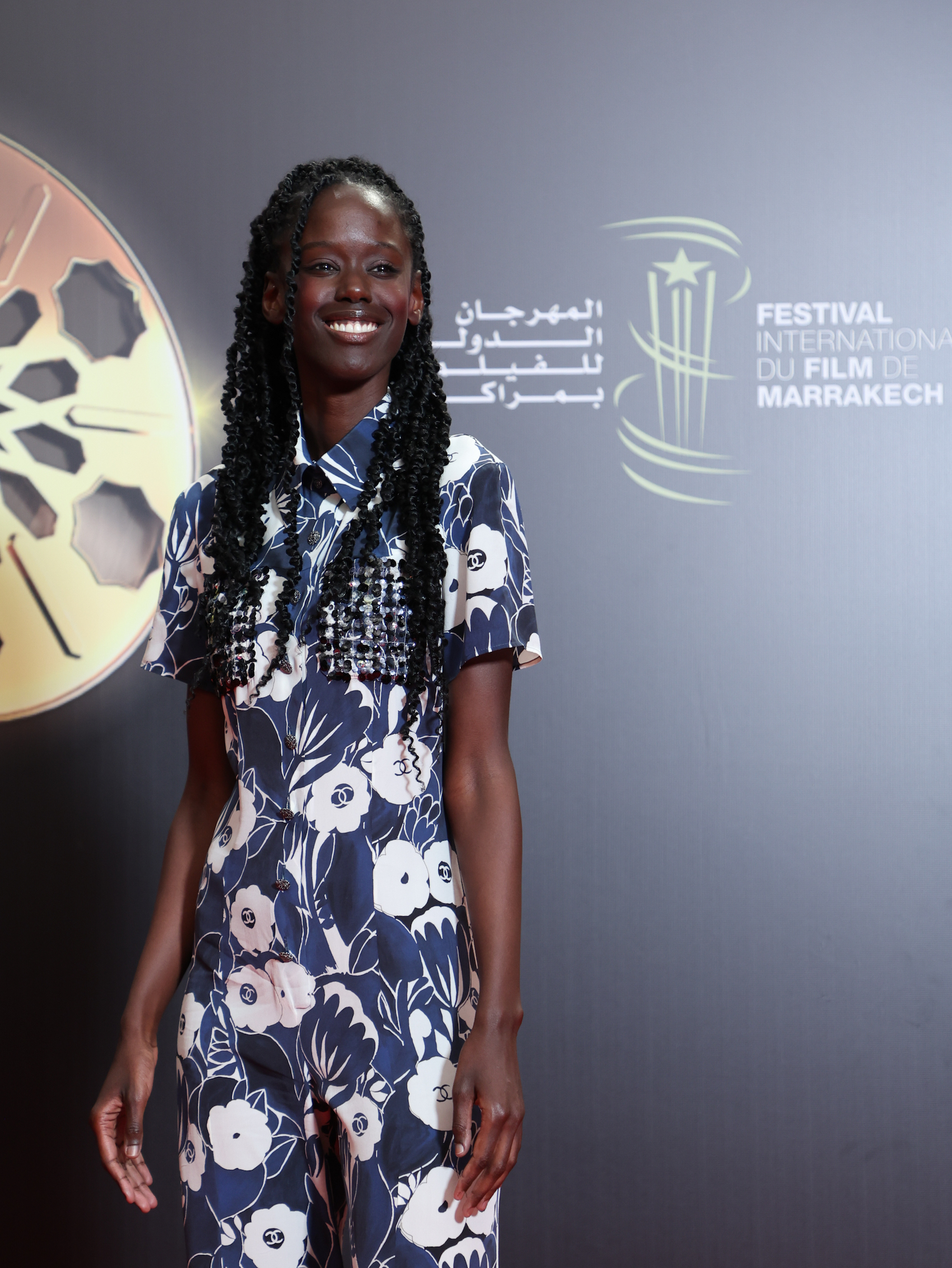Senegalese film director and screenwriter Ramata-Toulaye Sy was awarded the Best Directing Prize at this year’s edition of the Marrakesh Film Festival. Over the past few months, she has been making noise globally with her critically-acclaimed film Banel & Adama. Taking place in Senegal, the film follows the love story of a young couple who must contend with the disapproval of their remote village.
A day before Ramata-Toulaye was heading to Los Angeles to promote her project for the Oscars, Arabian Moda spoke to the director about the importance of African storytelling and representing regional films aboard.
AM: How does it feel to be here launching an African film on African soil?
RS: I'm very happy I am doing my first African festival after launching the film in Senegal. And I am proud to be present here in Marrakesh especially because Morocco and Senegal have a diplomatic and friendly relationship. There's a great Senegalese community here and my director of photography is Moroccan, so it's a pride for us all.
AM: Please tell us more about the film’s creative and research process…
RS: I was born in France, but I am originally from Senegal. We went to Senegal during holidays and in my family, we grew up with Senegalese culture. I wrote this script when I was in Senegal so there was no cultural research. It was more literary research about genres, because I knew I didn't want to make an African film, I wanted to make a genre film. So, I had a lot of books to read since I wanted to create a tragedy. I read books for Maya Angelou, William Shakespeare, Anton Chekhov and Toni Morrison. I had in mind to make magic realism and to be very metaphorical and poetic.
AM: What about the casting?
RS: The cast is made of non-professionals actors. We had a casting director who was in the region of north of Senegal for five months. The lead character was very complicated to cast, I found her in the street by chance. And then there was a lot of repetition because they were non-professional actors. I had a coach with me because some actors didn’t know how to read and write. I like my dialogues a lot and I didn’t want to change them.
AM: Any challenges during production?
RS: The temperatures were extremely high and the storm in the film is one that we actually survived. At some point the entire team was sick and we went to the hospital. Also, the climate conditions affected the electricity supply in the village.
AM: Tell us about the struggles of love relationships in Africa
RS: In fact, it's a problem and that's why I made this love story. I feel like we don't have the right to love in Africa. We just have the right to be poor, to be in war, struggling or looking for basic necessities. That's why I said to myself, I'm going to make a movie about love. I'm going to write a story to show that we Africans experience love and everything that it entails.
AM: Let’s talk about the music, why did you choose to work with Lebanese musician Bachar Mar-Khalifé?
RS: I wanted to stay away from the clichés and I searched for a composer who is either from North Africa, the Orient or even South America. I finally found Bachar after watching Mes frères et moi, a film he worked on. When we were at his concert with my sister, we said he’s the one. We met and then he made musical proposals that I absolutely loved.
AM: In your opinion what does African cinema need to become more global?
RS: If we take Senegal as an example, we have the talents and creativity but the industry is not yet able to put 2 million euros in one film. They can put 100,000 euros which can’t produce a film. I'm Franco-Senegalese, so it was normal that I make a movie financed by France. We all seek co-production to make it happen. The problem is the funds and we don't have enough. We can't put millions in a film while there are schools and hospitals that need it. But regardless, Senegalese cinema continues to exist.
AM: Finally, what’s next for you?
I need a break; it’s been non-stop for me. I'm not the kind of director who makes films every two years. I'm someone who thinks a lot, who loves perfection even if I know that perfection doesn't exist. And especially now, with the Oscars campaign as the film is representing Senegal. It was also sold in many countries so that’s also a lot of work as well.


